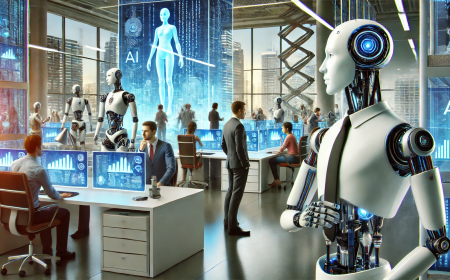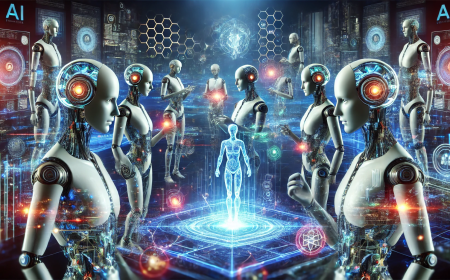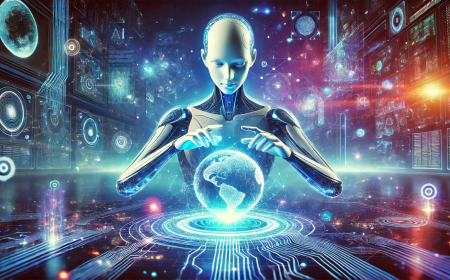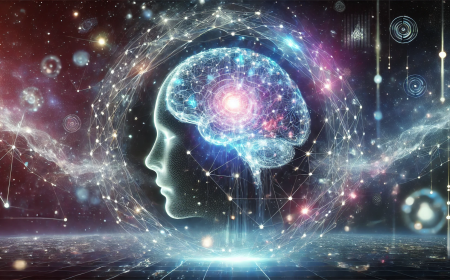The Rise of AI Agents: Evolution, Applications, and Challenges
Explore the rise of AI agents, their evolution, applications, and challenges. Learn how intelligent AI systems are transforming industries, enhancing productivity, and reshaping the future of work and society.
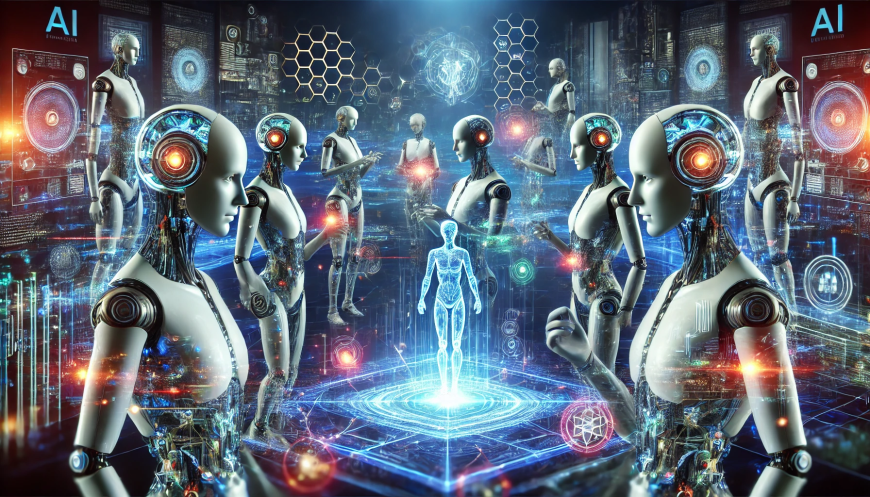
Artificial Intelligence (AI) has moved beyond being a futuristic concept—it’s now a transformative force reshaping industries, economies, and daily life. At the heart of this revolution are AI agents, intelligent systems designed to perform tasks, make decisions, and interact with their environments autonomously. From virtual assistants to advanced diagnostic tools, AI agents are becoming indispensable. But what exactly are AI agents, and how are they changing the world? Let’s explore their evolution, applications, and the challenges they bring.
1. Introduction
Defining AI Agents: What Are They?
AI agents are software programs or systems that can perceive their environment, process information, and take actions to achieve specific goals. They range from simple chatbots to complex autonomous systems capable of learning and adapting.
Brief History of the Development of AI Agents
The concept of AI agents dates back to the early days of AI research in the 1950s. Early systems were rule-based and limited in scope. Over time, advancements in machine learning, natural language processing, and neural networks have enabled the creation of more sophisticated and autonomous agents.
The Growing Role of AI Agents in Automation and Decision-Making
Today, AI agents are everywhere—from customer service bots to self-driving cars. They are revolutionizing industries by automating tasks, enhancing productivity, and enabling data-driven decision-making.
2. The Evolution of AI Agents
From Simple Rule-Based Systems to Intelligent, Autonomous Agents
Early AI agents followed predefined rules and lacked adaptability. Modern AI agents, powered by machine learning and neural networks, can learn from data, adapt to new situations, and make decisions with minimal human intervention.
Milestones in AI Technologies That Enabled Advanced Agents
Key advancements include the development of deep learning, reinforcement learning, and natural language processing (NLP). These technologies have enabled AI agents to understand, reason, and interact in human-like ways.
The Role of Neural Networks and Reinforcement Learning in Empowering AI Agents
Neural networks allow AI agents to process complex data, while reinforcement learning enables them to improve their performance through trial and error. Together, these technologies have unlocked new possibilities for AI agents.
3. Applications of AI Agents
Business and Industry: Virtual Assistants, Customer Service Bots, and Workflow Automation
AI agents are streamlining operations in businesses. Virtual assistants like Siri and Alexa handle tasks, while customer service bots provide 24/7 support. Workflow automation tools optimize processes, saving time and resources.
Healthcare: AI Agents in Diagnostics, Personalized Care, and Medical Research
In healthcare, AI agents are revolutionizing diagnostics by analyzing medical images and patient data. They also enable personalized care by tailoring treatments to individual needs and accelerating medical research through data analysis.
Education: AI Tutors and Adaptive Learning Platforms
AI agents are transforming education by providing personalized learning experiences. AI tutors adapt to students’ needs, while adaptive learning platforms offer customized content and feedback.
Creative Industries: AI Agents Generating Art, Music, and Written Content
From AI-generated art to music composition and content creation, AI agents are pushing the boundaries of creativity. Tools like DALL·E and ChatGPT are enabling new forms of artistic expression.
Everyday Life: Personal AI Assistants Like Smart Home Devices and Task Managers
AI agents are becoming part of our daily lives. Smart home devices like thermostats and security systems use AI to enhance convenience, while task managers help us stay organized.
4. The Advantages of AI Agents
Enhanced Productivity and Efficiency Across Sectors
AI agents automate repetitive tasks, freeing up human workers to focus on higher-value activities. This boosts productivity and efficiency across industries.
Ability to Process Large-Scale Data and Offer Insights in Real-Time
AI agents can analyze vast amounts of data quickly, providing real-time insights that drive better decision-making.
Cost-Effective Solutions for Repetitive or Labor-Intensive Tasks
By automating tasks, AI agents reduce costs and minimize errors, making them a cost-effective solution for businesses.
5. Challenges and Ethical Concerns
Issues of Bias, Transparency, and Accountability in AI Decision-Making
AI agents can inherit biases from their training data, leading to unfair outcomes. Ensuring transparency and accountability in their decision-making is crucial.
The Potential for Job Displacement and Societal Adjustments
While AI agents create new opportunities, they also pose a risk of job displacement. Societies must adapt by reskilling workers and creating new roles.
Privacy Concerns with AI Agents Processing Sensitive Data
AI agents often handle sensitive data, raising concerns about privacy and data security. Robust safeguards are needed to protect user information.
Ensuring Alignment with Human Values and Safety
AI agents must be designed to align with human values and prioritize safety. This includes addressing ethical dilemmas and ensuring they act in users’ best interests.
6. The Future of AI Agents
Predictions for the Evolution of AI Agents and Their Integration into Everyday Life
AI agents will become more advanced, intuitive, and integrated into our lives. They will play a key role in smart cities, healthcare, and personalized services.
The Role of AI Agents in Shaping Future Industries and Economies
AI agents will drive innovation, create new industries, and transform existing ones. They will enable more efficient resource allocation and decision-making.
Collaborative Potential: Humans and AI Agents Working Together
The future lies in collaboration, where humans and AI agents complement each other’s strengths. This partnership will unlock new possibilities and drive progress.
7. Philosophical and Societal Impacts
How AI Agents Redefine Concepts of Intelligence, Autonomy, and Creativity
AI agents challenge our understanding of intelligence and creativity. They raise questions about what it means to be autonomous and how we define human uniqueness.
Exploring the Balance Between Human Oversight and AI Independence
As AI agents become more autonomous, finding the right balance between human oversight and AI independence will be critical.
The Cultural Impact of Relying on AI Agents in Decision-Making
Relying on AI agents for decisions could shift cultural norms and values. It’s essential to ensure that these systems reflect and respect human diversity.
8. Conclusion
AI agents are transforming the way we live, work, and interact with the world. They offer immense potential to enhance productivity, creativity, and decision-making. However, their rise also brings challenges that require careful consideration. By approaching the development and use of AI agents with responsibility and foresight, we can create a future where they serve as powerful allies in human progress.
What's Your Reaction?












